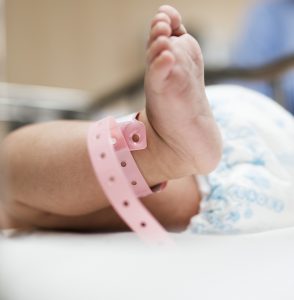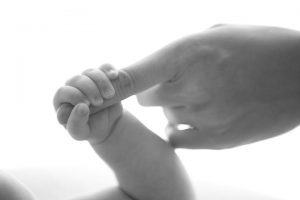 Treatment for Infants with Opioid Addiction
Treatment for Infants with Opioid Addiction
As our opioid-NAS lawyers in Memphis continue to pursue our cases against the major opioid pharmaceutical companies, doctors continue to care for children with withdrawal.
What is this terrible disease, how does it impact infants, and what can families do whose children have been hurt by opioids?
What Is Opioid-NAS?
NAS stands for neonatal abstinence syndrome. It is a group of problems that occur in a newborn baby who was exposed to addictive illegal or prescription drugs while in the mother’s womb.
When a pregnant woman uses drugs, the baby is also exposed to the drugs and can become physically dependent on them. Then, when the baby is born, they may experience withdrawal symptoms because they no longer receive the drugs.
Symptoms of neonatal abstinence syndrome can include:
- tremors
- seizures
- excessive crying
- difficulty sleeping
- fever
- diarrhea
- vomiting
- and rapid breathing
In addition, babies with NAS are more likely to experience:
- low birthweight
- jaundice, or an under-developed liver
- sudden infant death syndrome (also called SIDS)
 How Hospitals Currently Treat Children with NAS
How Hospitals Currently Treat Children with NAS
Until 2010, hospitals used something called the “Finnegan” tool—which was developed in the 1970s—to assess infants for signs of drug withdrawal.
If the newborns met the threshold for NAS, they were transferred immediately to the NICU. That usually meant total separation from their mother, loud beeping monitors, busy staff, and loud other infants.
Then in 2010, with the massive rise in opioid-related NAS (cases rose 5x the normal amount), Yale Children’s Hospital began a new type of treatment with great results.
Previous treatments tended toward using opioids or sedatives to help manage withdrawal symptoms. Now, if the mother is able, many hospitals prioritize breastfeeding and skin-to-skin contact.
In some cases, the mother’s own withdrawal symptoms make them unable or unwilling to care properly for the baby. In those instances, hospital staff may swaddle and hold the baby themselves, give them a quiet and warm environment, and provide skin-to-skin contact as possible.
Some hospitals, like Massachusetts General Hospital, also offer specialized post-natal care for mothers with opioid addiction.
These new methods have cut the length of hospitalization for some babies with NAS by over half.
 What Happens to the Child After Treatment?
What Happens to the Child After Treatment?
In most cases, hospitals prioritize keeping the mother and child together. Ideally, children and their mothers can both recover from opioid addiction and have promising futures together.
However, in reality, opioid addiction doesn’t always allow for this. Sadly, infants with opioid withdrawal typically have the disease because their mothers couldn’t stop using during pregnancy. It can be even harder for the mother to get off drugs after the birth, when costs and stress increase.
If the hospital suspects the mother still abuses opioids, they may take steps to find the child a different home.
Our opioid-NAS lawyers in Memphis have worked with families who adopted children from other family members. Others have taken in children from mothers who couldn’t beat the addiction in time. Some children return to their birth mothers later. Many enter the foster care system in the hopes of future adoption.
These can be complicated cases, as the children often have special needs related to their NAS.
 Our Opioid-NAS Lawyers in Memphis Are Still Accepting New Clients
Our Opioid-NAS Lawyers in Memphis Are Still Accepting New Clients
As the number of children born with NAS continues to climb, we continue to find out about more families who need help and compensation for what happened to their infants.
The major opioid manufacturers not only distributed these highly addictive drugs; they also convinced doctors and their patients that the drugs weren’t as addictive as they actually are.
The results have devastated entire communities, ravaged unsuspecting patients and their families, and left children without homes.
Infants born with opioid withdrawal deserve justice for what happened to them and financial help as they recover.
Our opioid-NAS lawyers in Memphis are still accepting patients. If you believe your adopted child was exposed to opioids during pregnancy or breastfeeding, or if your child suffered from NAS as in infant, we want to speak with you. You may be entitled to compensation.
To get started, call us today at 901-327-2100 or fill out the form below. The conversation is completely free.
